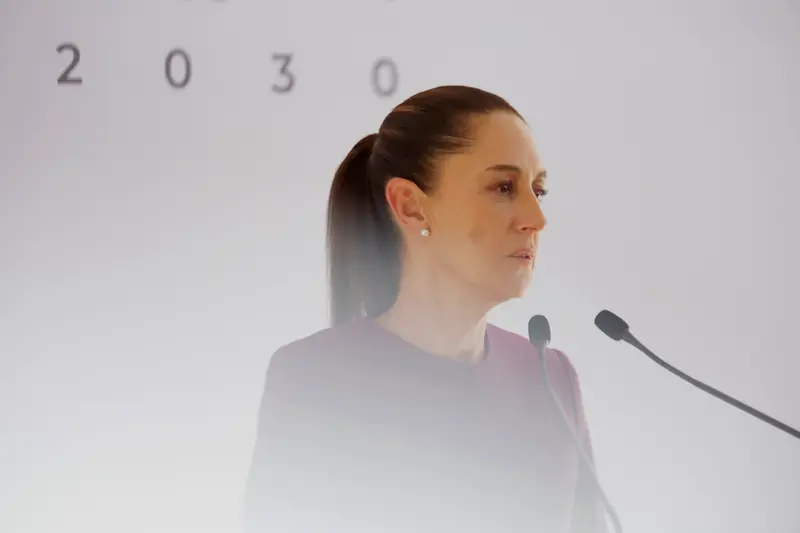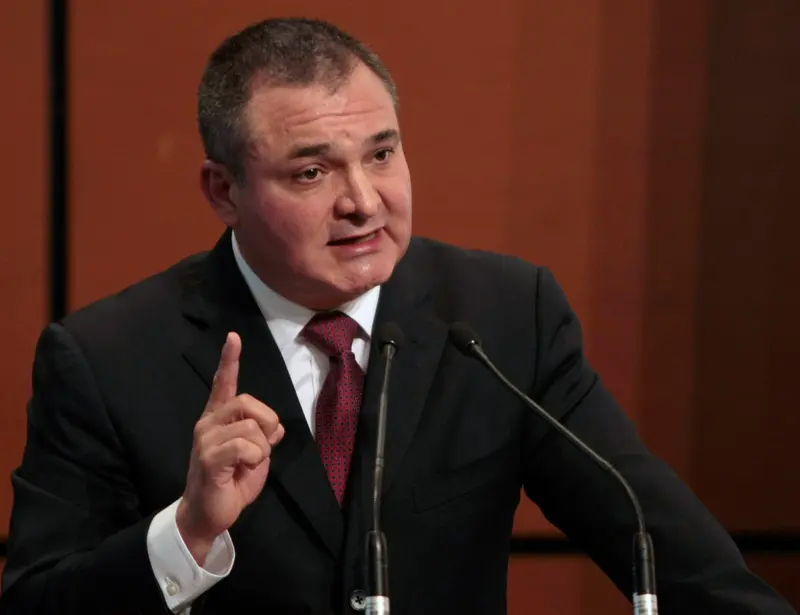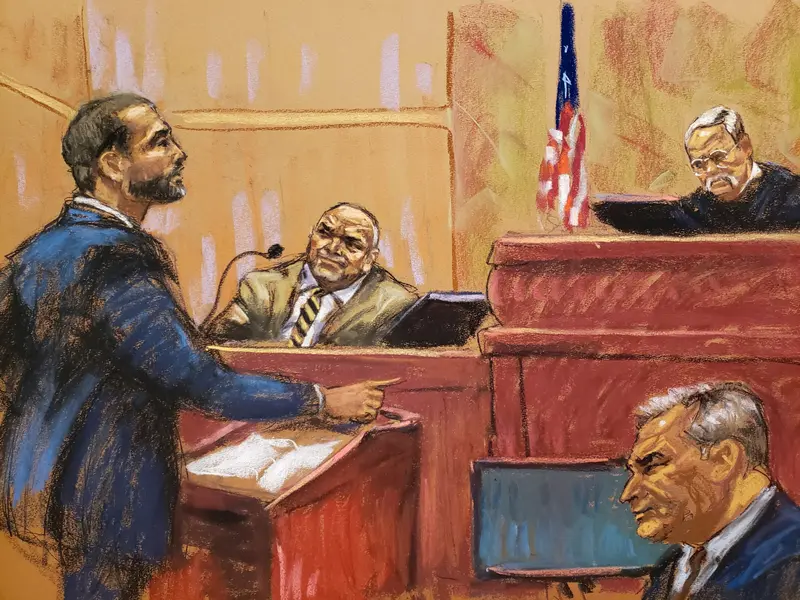When the Justice Department shut down a secret inquiry into allegations that drug traffickers had funded the first presidential campaign of Mexico’s leader, Andrés Manuel López Obrador, officials in Washington closed the case forcefully.
Over the years that followed that 2011 decision, U.S. law enforcement agencies continued to hear similar reports, including accounts from at least four high-level Mexican traffickers who said their gangs helped to fund López Obrador’s political machine in return for promises of government protection, documents and interviews show.
But U.S. investigators did not pursue those claims, in part because they saw little support in Washington for a corruption case against an important Mexican political leader, current and former officials said.
“We took our best shot, and they didn’t want to do the case,” one former investigator for the Drug Enforcement Administration said of the 18-month inquiry into López Obrador’s 2006 campaign. “That was it; nobody had any appetite to push it forward.”
López Obrador lost that first presidential race and a second in 2012 before winning election in 2018. A sharp critic of his predecessors’ U.S.-backed “war” on the traffickers, he promised to use social programs — “hugs, not bullets” — to dissuade young Mexicans from joining the mafias. But his presidency has seen organized crime flourish as never before.
The president has denied that his 2006 campaign took money from the traffickers. He blamed recent reports about the DEA inquiry by ProPublica and other news organizations on a conspiracy to weaken his political party ahead of national elections last month. Yet concerns about possible mafia ties to at least one member of his 2006 campaign staff have also emerged within his own government.
The candidate of López Obrador’s party, Claudia Sheinbaum, won the presidential race by a landslide. Although violence was a central issue in the vote, she has signaled that she will follow similar policies in dealing with organized crime.

Credit:
Gerardo Vieyra/NurPhoto via Getty Images
As ProPublica reported this year, the DEA investigation began in April 2010, after a trafficker-turned-informant gave agents a detailed account of the negotiation and delivery of some $2 million to López Obrador’s 2006 campaign. It ended when the Justice Department rejected a DEA-proposed sting operation inside Mexico aimed at the future president’s political team.
After Justice officials closed down the inquiry, several high-profile drug traffickers who were captured in Mexico and extradited to the United States offered investigators further information about the mafias’ dealings with López Obrador’s political operation. But, according to previously undisclosed government documents and interviews with more than a dozen current and former U.S. officials, nearly all of that information was filed away or ignored.
Although details of the case were closely held, a larger circle of U.S. law enforcement agents was aware that an investigation into López Obrador’s campaign had been aborted in part because of the perceived risks to the U.S.-Mexico relationship. In other cases, investigators said, they were simply more focused on what information they could extract from the traffickers about their mafia associates and the movement of their drugs. Because of the sensitivity of the case, the officials would only discuss it only on the condition of anonymity.
The American-born trafficker who was said to have donated the $2 million to López Obrador’s campaign, Edgar Valdez Villareal, known as “La Barbie,” was captured by the Mexican authorities in 2010, just as the DEA probe was gaining momentum. But by the time he and two of his lieutenants were extradited, the case was over.
One of those lieutenants, Sergio Villarreal Barragán, a tall former police officer known as “El Grande,” gave the most substantial information to American investigators. In a recent book, a Mexican journalist, Anabel Hernández, quotes unnamed sources as saying the trafficker told senior Mexican prosecutors and two DEA agents in the first days after his arrest on Sept. 12, 2010, that he had personally delivered $500,000 to López Obrador in June 2006, near the end of his election campaign.
But a previously unpublished DEA report reviewed by ProPublica makes no mention of that assertion. The two agents’ “Report of Investigation,” dated Sept. 20, quotes the trafficker as saying he “was interested in cooperating with the U.S. Government and would be able to provide valuable information on high-ranking Mexican government officials.” However, officials familiar with the episode said El Grande emphasized that he would only talk once he was safely extradited to the United States.

Credit:
Henry Romero/Reuters
Several former officials said that it was not uncommon for American law enforcement agents in Mexico to edit out allegations of high-level corruption from reports they knew would be shared with other U.S. agencies. Officials familiar with the López Obrador campaign inquiry said they never heard that El Grande claimed to have personally delivered cash to the candidate.
El Grande did start talking more openly about Mexican corruption on the extradition flight that took him to Texas in May of 2012, officials said. He described huge bribes to senior officials, including Genaro García Luna, a powerful former security minister who was later convicted on U.S. drug conspiracy charges. He also confirmed he attended the 2006 meeting at which La Barbie agreed to fund López Obrador’s campaign. But the officials added that he was not questioned in detail about those donations because the DEA’s investigation had already been shut down.
Three years later, El Grande’s onetime boss, La Barbie, was extradited to Atlanta, where he, too, confirmed some aspects of the 2006 donations, officials said. But the DEA’s inquiry was far enough in the past that investigators did not question him in depth about López Obrador, they added. (Prosecutors also viewed his memory as sufficiently unreliable that they chose not to use him as a witness in the corruption trial of García Luna last year.)
Another Sinaloa trafficker, Jesús Reynaldo Zambada García, has testified in two high-profile New York trials that his faction of the syndicate also donated millions of dollars to López Obrador’s political apparatus. But Zambada’s accounts have been vague and fragmentary, in part because federal prosecutors sought to limit his testimony about Mexican corruption.
Until his capture by the Mexican authorities in 2008, Zambada oversaw the syndicate’s operations in Mexico City, including the elaborate layers of bribes it paid to safeguard cocaine flights that landed in and near the capital.
During the 2018 trial of Sinaloa cartel leader Joaquín “El Chapo” Guzmán, Zambada testified that the gang had paid “a few million dollars” to a top Mexico City security official in 2005, when López Obrador was the capital’s mayor. Zambada indicated that the money was a down payment for protection in a future national government run by López Obrador.
In another trial last year, Zambada confirmed that he had told U.S. investigators that his group paid López Obrador’s aide, Gabriel Rejino, “something like” $3 million.

Credit:
Jane Rosenberg/Reuters
The claim made headlines in Mexico, where both López Obrador and Regino denied it. But the story got muddy after a lawyer asked Zambada if he had once told investigators the cartel paid Regino $7 million for López Obrador’s campaign against Vicente Fox. (Fox was the previous president from the conservative party of former President Felipe Calderón; in 2006, López Obrador ran against Calderón to succeed Fox.) Zambada, who seemed puzzled by the question, denied saying any such thing.
But a previously unpublished document reviewed by ProPublica shows that Zambada did in fact make such a claim — or that the Homeland Security agent who summarized his debriefing on July 6, 2013, in Washington might have confused one conservative president with another.
“López was paid $7 million USD through Gabriel Regino when López was running against President Fox,” states a summary of the interview, which focused mainly on the layers of bribes to police, customs and military officials that Zambada arranged for drug flights into Mexico City and nearby Toluca.
Current and former U.S. officials said some extradited members of two other Mexican trafficking groups, the Gulf cartel and the Zetas, told investigators that their gangs also contributed to López Obrador’s 2006 campaign.
The first of those traffickers, former Gulf Cartel leader Osiel Cárdenas Guillén, told agents soon after being extradited to Houston in 2007 that his organization had given money to López Obrador’s campaign as well as to government security officials, two people familiar with his account said. But agents did not ask Cárdenas in detail about those purported bribes because they thought then that there was little chance the Justice Department would try to prosecute a corruption case, these people said. An attorney for Cárdenas, Chip B. Lewis, declined to comment on the report.
Although López Obrador has insisted in recent months that there is “no evidence” behind the reports of traffickers’ contributions in 2006, documents from his own government show that Mexico’s defense minister had serious concerns about the alleged drug ties of a staff member from that campaign.
The concerns focused on a retired army colonel, Silvio Hernández Soto, who was one of López Obrador’s senior bodyguards in 2006 and became a target of scrutiny for both DEA investigators and Mexican prosecutors who led a sweeping anti-corruption case during the Calderón government.
A DEA informant who had worked as a trafficker for La Barbie told investigators in both countries that he had been introduced to Hernández in connection with the 2006 campaign and later sought his help in arranging military protection for drug flights through the Cancún airport. In 2012, Hernández was arrested in Mexico along with several army generals who were said to have assisted with the protection scheme.
In 2013, however, a new Mexican government abruptly changed course, dropped the corruption investigation and freed all the suspects in the case. Although the accusations against Hernández were never disproved, he went on to serve as a senior police official in western Sinaloa state, the heartland of Mexico’s drug industry.
After López Obrador took power in 2018, Hernández was named to a sensitive, high-level post in the Mexican attorney general’s office. But in an extraordinary move that did not become public at the time, the new president’s defense minister, Gen. Luis Cresencio Sandoval, sought to block the appointment, documents show.
In a letter to the attorney general on Sept. 12, 2019, Sandoval warned there was “documentary evidence” in both court files and military intelligence databases showing that Hernández “maintained ties with members of organized crime.” The letter cites allegations from the Mexican anti-corruption case — which had also been closely investigated by military prosecutors — and incidents from Hernández’s tenure in Sinaloa.
The letter also noted that the senior official who had recommended Hernández for the sensitive post in the attorney general’s office was the president’s intelligence chief, retired Gen. Audomaro Martínez — who had been Hernández’s direct boss during López Obrador’s 2006 campaign.
The defense minister’s letter was first reported by the nongovernmental group Mexicans Against Corruption and Impunity, which discovered it in a trove of Defense Ministry documents made public last year by a hacker group, Guacamaya Leaks.
López Obrador’s chief spokesperson, Jesús Ramírez Cuevas, said Hernández was not ultimately hired to the attorney general’s office or any other post in López Obrador’s government. He did not comment on why Martínez had recommended Hernández for the position.
A lawyer for Hernández did not respond to messages seeking comment.

